As a leading design, build and sourcing company, we understand the importance of conscious design and responsible sourcing in today’s world.
That’s why we are taking proactive steps to prepare for the upcoming Corporate Sustainability Reporting Directive (CSRD), which will come into effect in 2024.
We have been monitoring this new climate regulation and its implications for both Sourcebynet and customers. As part of our commitment to providing conscious design and responsible sourcing for our customers, we are slowly but surely going through the CSRD requirements to help our clients comply with the new regulations.
But what does the CSDR require?
From 2024, the most prominent companies will have to disclose sustainability-related information in their financial reports, including data on environmental, social, and governance aspects. By 2026, all listed and large companies operating within the EU, as well as listed SMEs, will need to comply with the CSRD. The CSRD will help investors identify sustainable businesses and technologies, thereby supporting the EU’s goal of achieving climate neutrality by 2050.
To summarise, the CSRD:
- extends the sustainability reporting scope to all large companies and all companies listed on regulated markets
- requires the audit of reported information
- introduces more detailed reporting requirements
- requires companies to digitally ‘tag’ the reported information

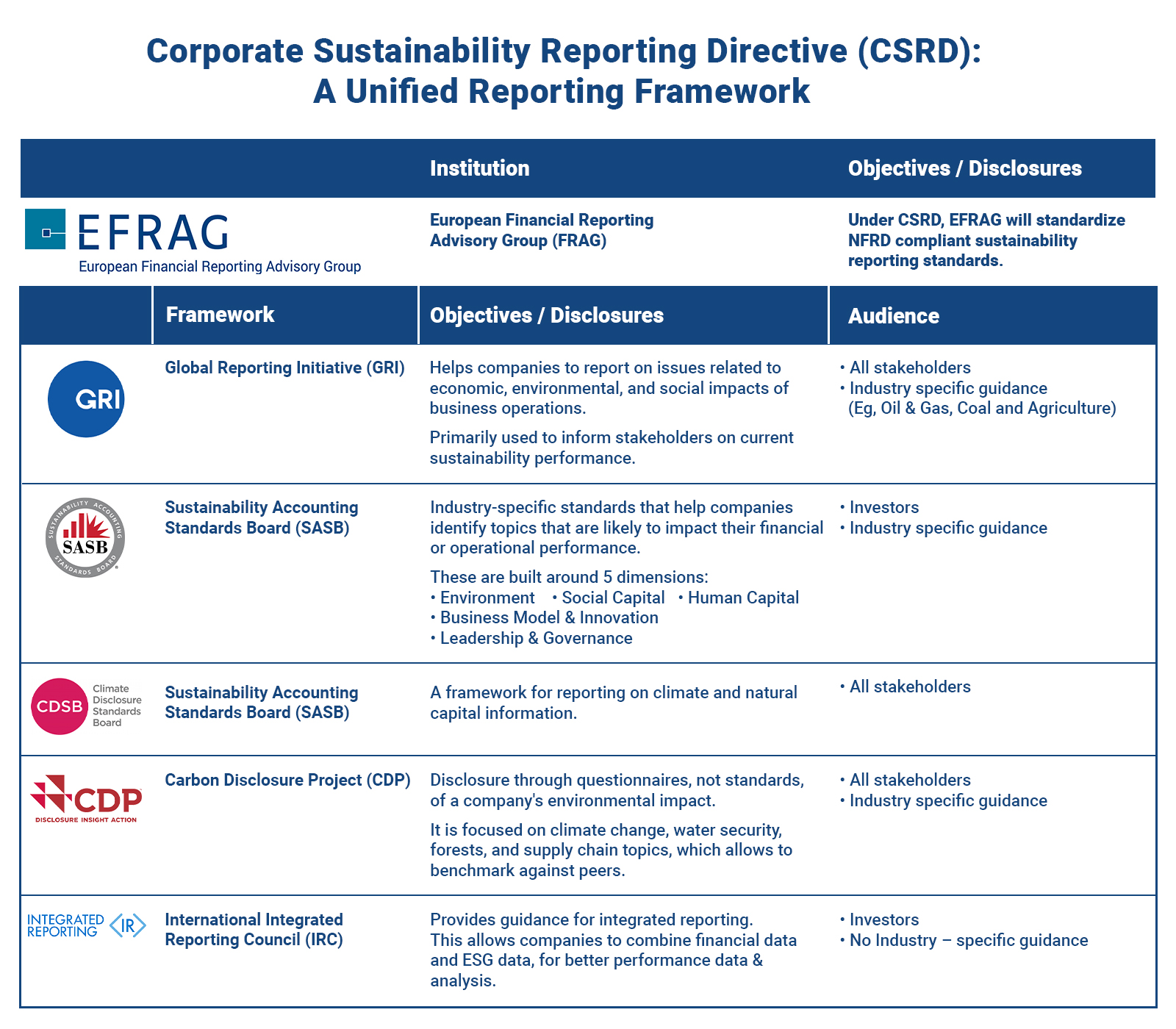
So, you may ask why is a new regulation being implemented?
Setting a higher bar
The previous climate regulation in the European Union, known as the Non-Financial Reporting Directive (NFRD), was developed in the mid-2010s to promote transparency around corporate social responsibility and provide investors with company-level information to aid sustainability-focused investment decisions. However, while establishing essential sustainability reporting principles, the EU now considers the previous regulation to be obsolete.
In fact, many reports prepared under the NFRD often omit information that investors and stakeholders deem important. The lack of clear and stringent reporting standards has also led to disparities in sustainability reporting between EU member states, making it difficult and unreliable to compare information across companies.
The new climate regulation, the Corporate Sustainability Reporting Directive (CSRD), aims to standardise sustainability reporting standards while increasing transparency and accountability in corporate actions.
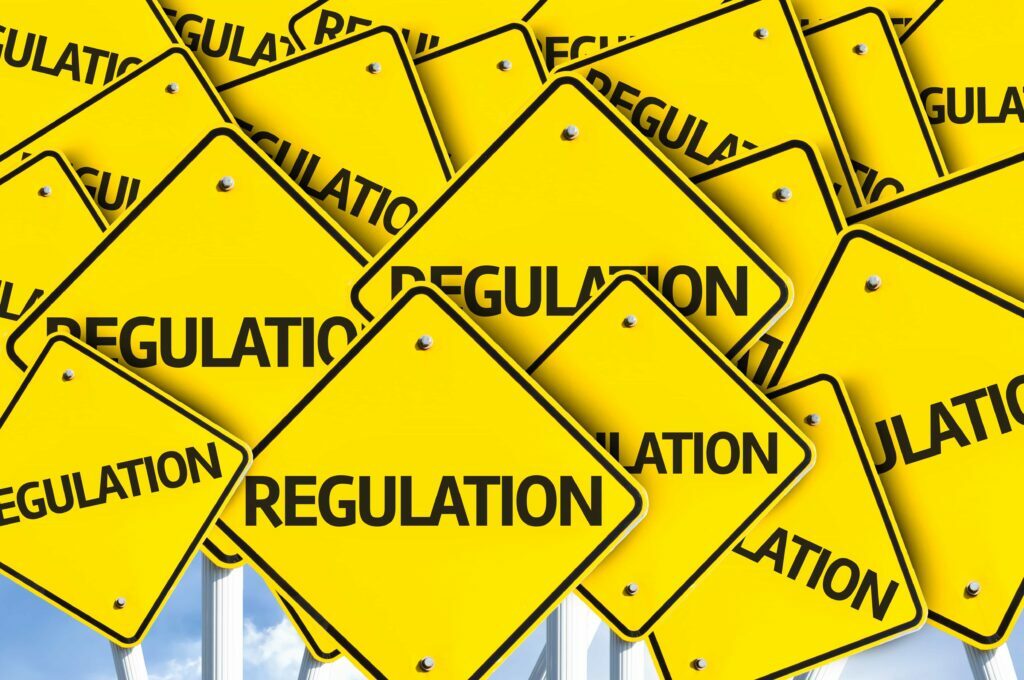
What is the CSRD timeline?
2021
21 April
The CSRD was publicly proposed by the European Parliament
9 November
Adopted by the European Parliament
28 November
Approved by the European Council
November 2022
First draft of conceptual guidelines and core standards produced
Q4 2023
Updated draft expected
2025
All large companies subject to NFRD will publish the first report based on data from 2024
2026
Mandatory for every large company in the EU and outside to submit reports based on data from 2025
2027
SME’s will have to publish their first reports based on data from 2026
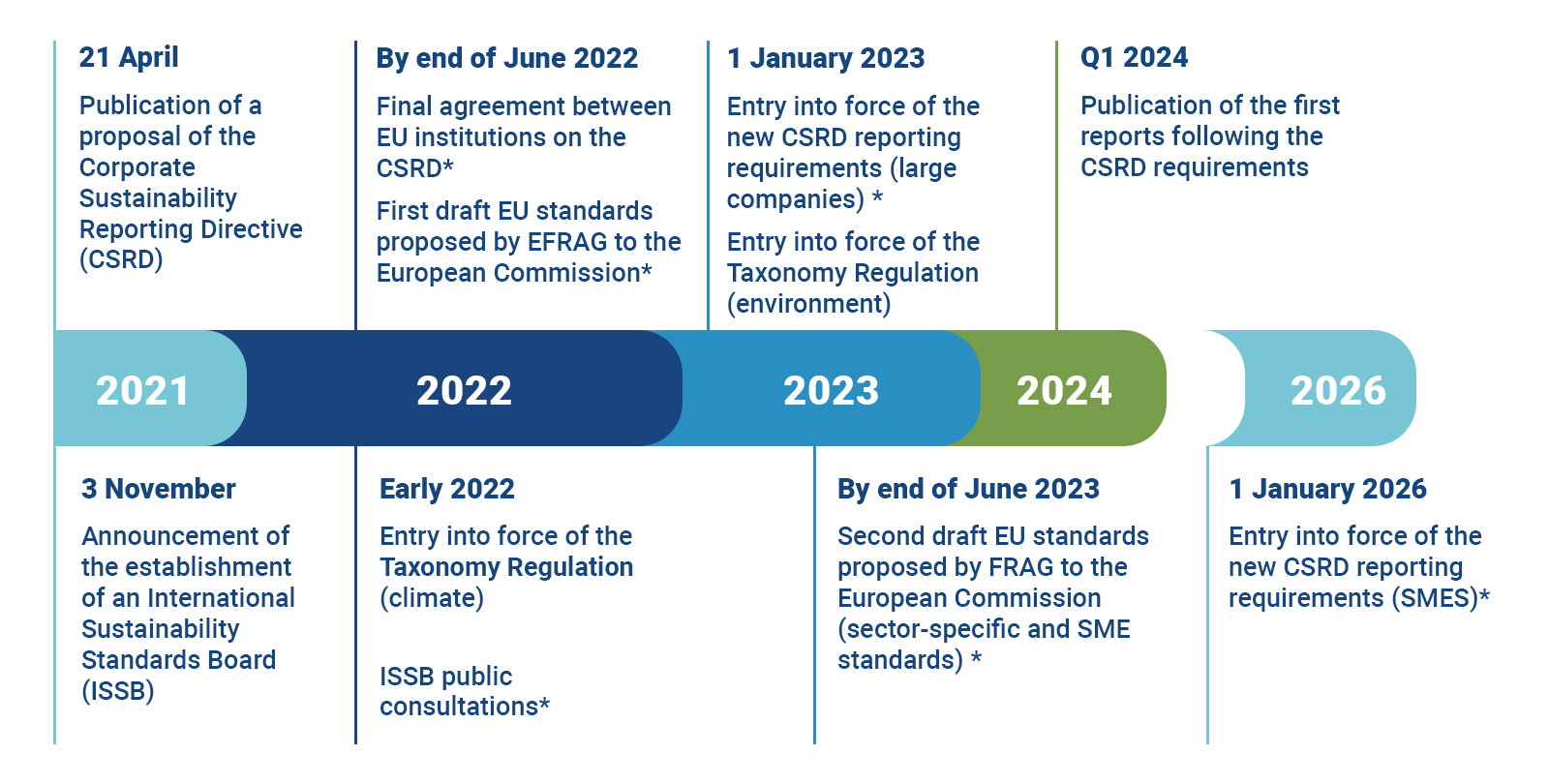
Who is liable for complying with CSRD?
To start, all companies already subject to the NFRD will have to be CSRD compliant during 2024.
Commencing 2025, all companies that meet at least two of the following criteria will be subject to the CSRD:
- 250 and more employees on average during the financial year;
- €40m or more in net turnover;
- €20m or more in total assets
Starting in 2027, publicly traded SMEs will also be required to comply with the CSRD:
Medium-sized companies that meet at least 2 of the following criteria:
- 50 – 249 employees on average during the financial year;
- €8m – €40m in net turnover;
- €4m – €20m in total assets
Small-sized companies that meet at least 2 of the following criteria:
- 10 – 49 employees on average during the financial year;
- €700k – €8m net turnover;
- €350k – €4m in total assets
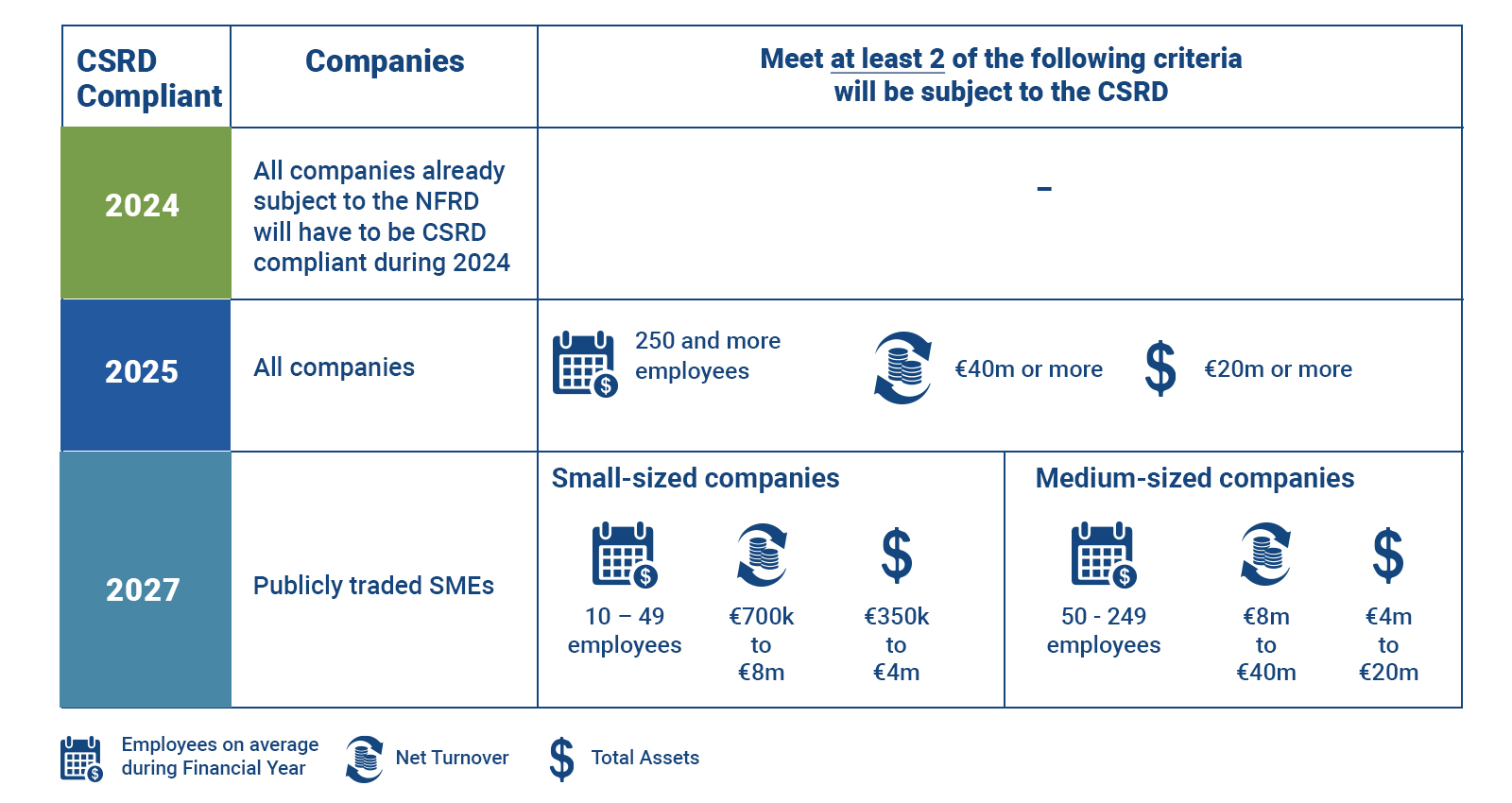
A very important factor that some may miss is; International and non-European companies with more than €150 million in annual turnover within the EU will also have to meet the CSRD requirements from 2026.
OK, but who is not liable for the CSRD?
Still, many companies will not fall under the CSRD. However, these companies can voluntary report following the CSRD standards to increase their transparency.
Listed small businesses will not be subject to the CSRD if they meet at least two of these requirements:
- 10 and less employees on average during the financial year
- Less than € 700K in net turnover
- Less than € 350K in total assets
Is there an overview of what would need to be reported on?
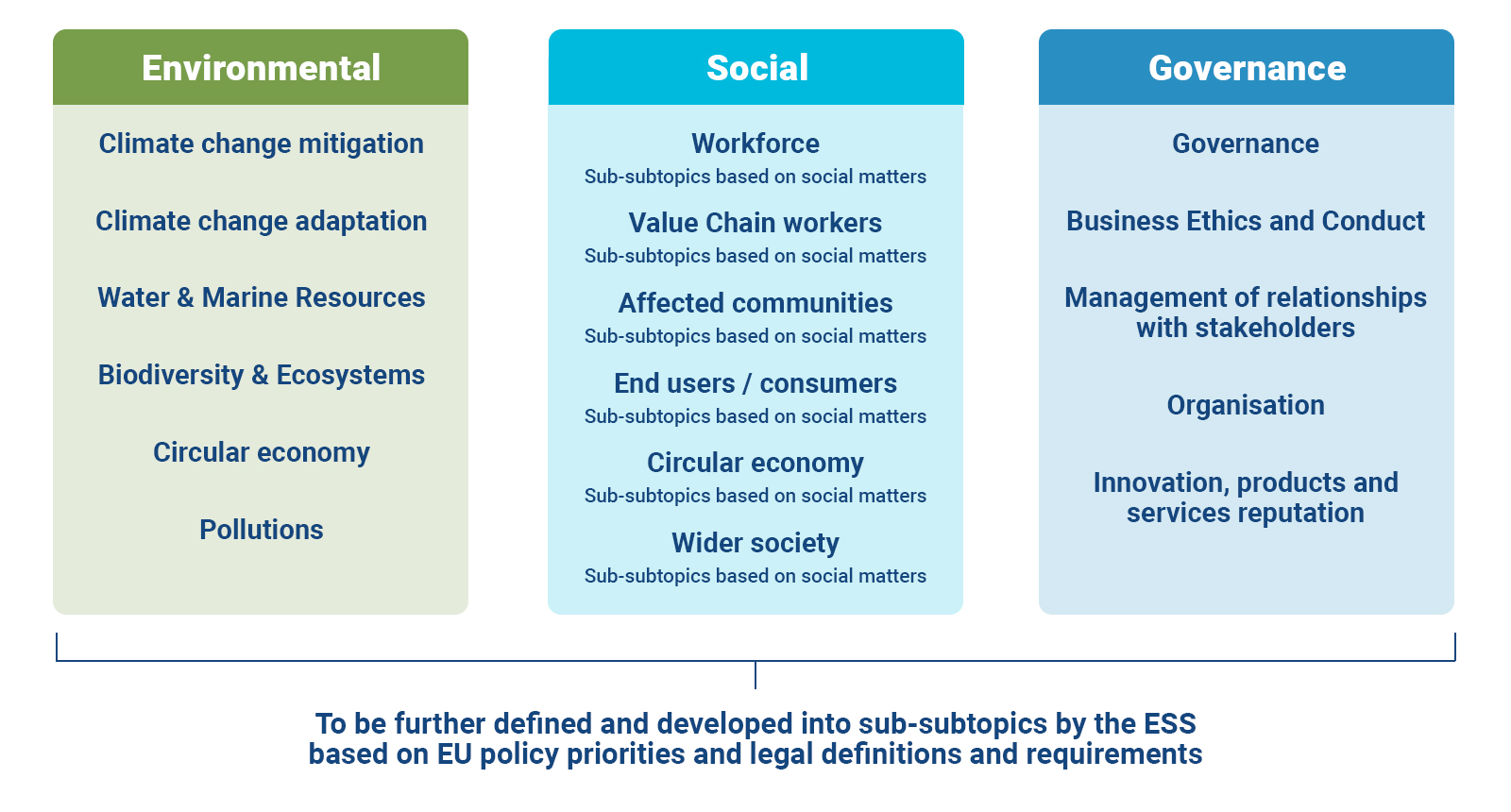
The CSRD will require that data disclosed in reports be verified by third parties to ensure the accuracy and reliability of the information reported.
How is Sourcebynet preparing for the CSRD?
With the framework for the CSRD being finalised, there are a few steps to which any company can take to best prepare. Sourcebynet is beginning their sustainability journey by measuring our carbon footprint. This will enable us to have a baseline for where they stand and then begin to attack the relevant ESG requirements. We’re also doing a huge amount of reading of the current CSRD proposal, whilst consulting with industry experts on the matter.



